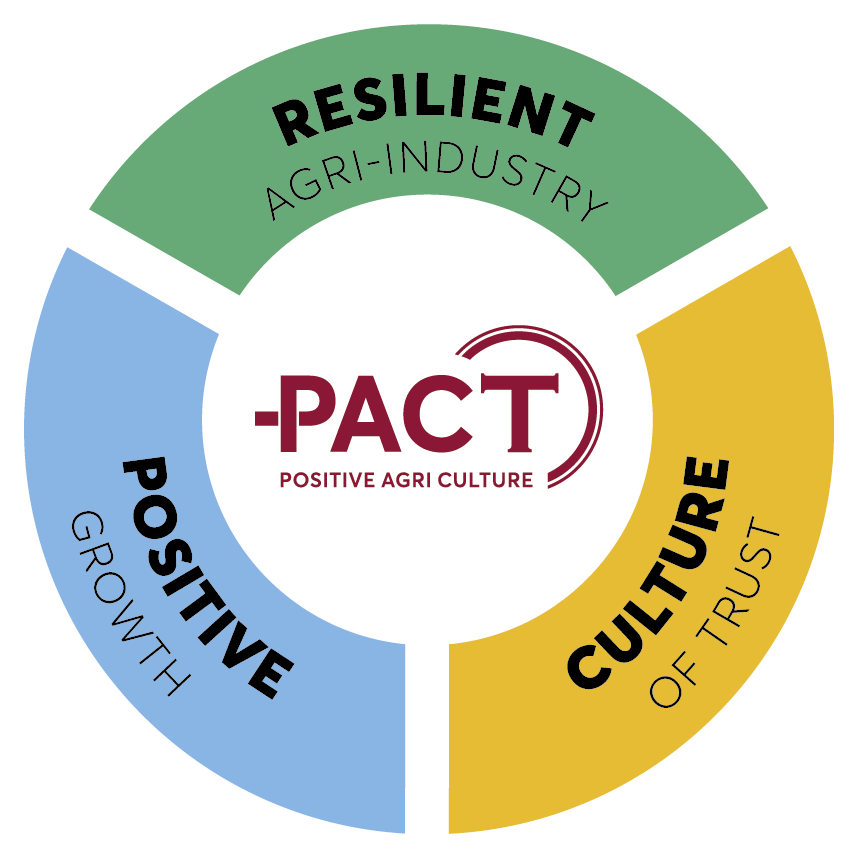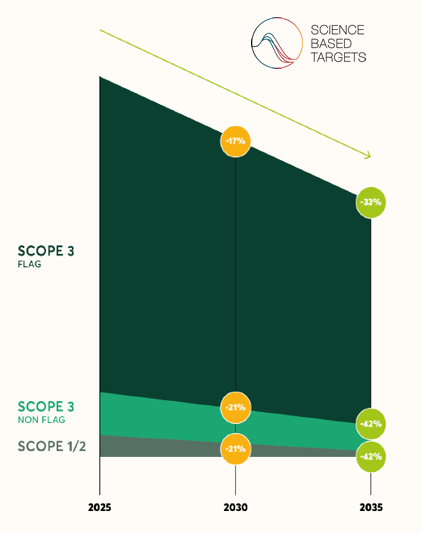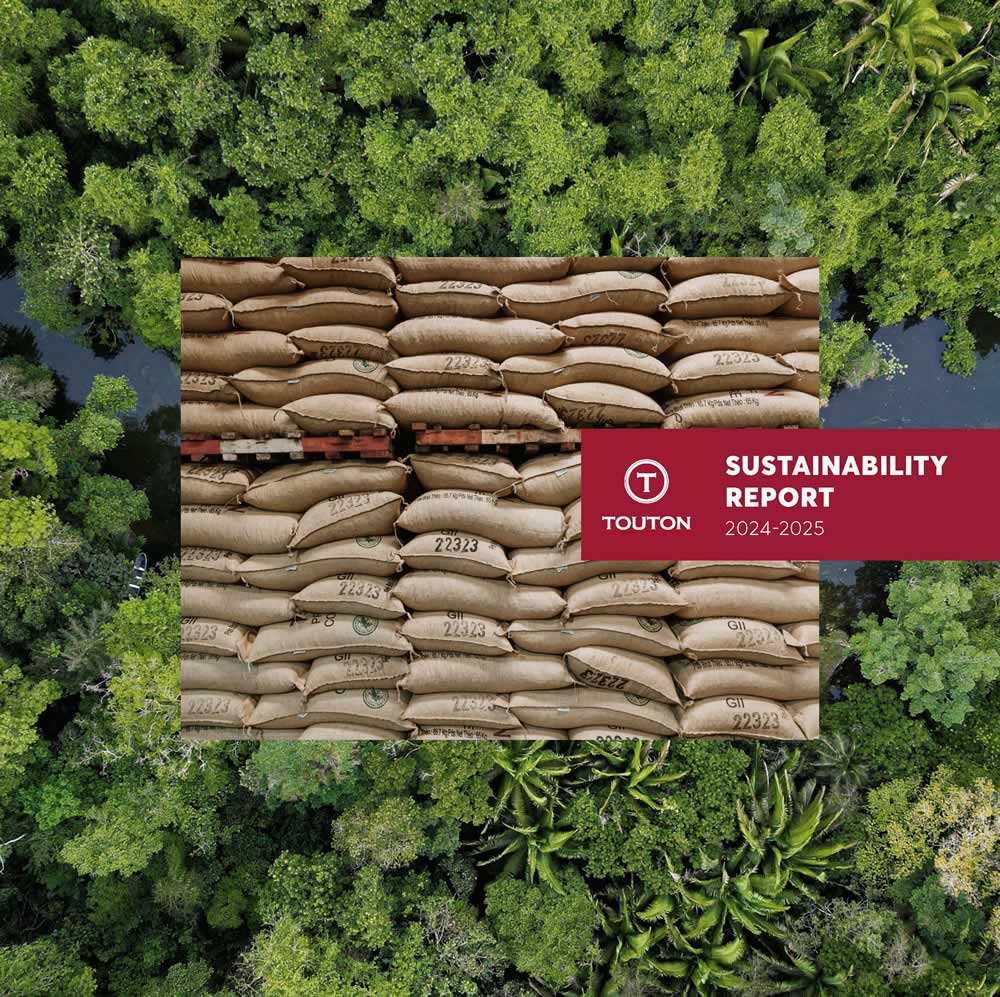OUR SUSTAINABILITY STRATEGY
As field players, we are involved at every level of the value chain. Our vision and collective action plan for a more sustainable and responsible agro-industry builds on our 175 years of experience working alongside producers' communities and tropical ecosystems.
PACT, the Positive Agri Culture by Touton, is the group’s Corporate Social Responsibility Strategy, based on Touton’s vision of what trade will look like in the future.
Founded on our extensive expertise for managing challenges in our supply chains and aligned with the United Nations Sustainable Development Goals, the Positive Agri Culture strategy sets 3 clear objectives: fostering POSITIVE GROWTH, building a RESILIENT AGRI-INDUSTRY, nurturing a CULTURE OF TRUST.
It serves as a unifying force, embodying our group’s values, due diligence approach and actionable strategies for engaging with stakeholders and ecosystems.

- • Positive
- In line with our entrepreneurial spirit.
- • Agri
- Because agricultural raw materials are at the heart of what we do.
- • Culture
- The relationship of trust that we build to connect all actors of the value chain: from partner-producers to colleagues and clients.
PACT Strategy
- Integrates our group commitments and policies, including our Due Diligence policies for Human Rights, Labour Rights and Environment, Touton Code of Ethics, Supplier Code of Conduct, Grievance Mechanism, but also our Food quality and safety policy and our Climate strategy
- Underpins the group’s sustainability report and anticipates key aspects of the new Corporate Sustainability Reporting Directive.
- Feeds into our management systems and processes, informing several operational standards and ratings of the group, such as IFS Broker Standard (headquarters), ISO 9001 (in the Ivory Coast) or FSSC22000 (CTPC factory in Ghana)
- Provides the backbone for our verified responsible sourcing instrument: PACT STANDARD
RETROUVEZ NOS POLITIQUES RSE :


CLIMATE STRATEGY & CARBON EMISSIONS REDUCTION OFFICIAL COMMITMENT
 Touton has officially committed to set near-term (2035) company-wide greenhouse gas emissions reduction targets to limit global temperature rise to 1.5 °C with the Science-Based Targets initiative (SBTi). With 93% of the group’s GHG emissions stemming from agricultural production, we aim to lead by example by enhancing the environmental performance of our direct operations.
Touton has officially committed to set near-term (2035) company-wide greenhouse gas emissions reduction targets to limit global temperature rise to 1.5 °C with the Science-Based Targets initiative (SBTi). With 93% of the group’s GHG emissions stemming from agricultural production, we aim to lead by example by enhancing the environmental performance of our direct operations.
At the group level, we will also support supply chain actors in their climate transition by promoting low-carbon transportation, implementing a zero-deforestation policy, or enhancing the capacity of natural carbon sinks through agroforestry.
SUSTAINABILITY REPORT 2024-25
This year’s report reflects Touton’s determination to maintain stability in the face of turbulence. Building on the key learnings and progress of 2023–24, the group has consolidated its practices and reinforced its impact across cocoa, coffee, and ingredients supply chains. Despite severe market disruptions, Touton’s teams have consistently upheld their commitments to partners and clients.
Beyond market management, 2024–25 was a year of strategic reinforcement across operations, ensuring financial robustness through diversified financing sources, advancing its CSR strategy – the Positive Agri Culture by Touton – and scaling its own responsible sourcing PACT STANDARD. The group also further progressed its climate strategy, while enhancing regulatory readiness (EUDR) through digital transformation and achieved IFS Broker certification, making it one of the first global cocoa and spices traders to hold this distinction.
- Find out more about PACT, our new CSR strategy, and its verified sourcing instrument, PACT STANDARD.
- Read about our active sustainability programmes to deliver upon our social, economic, and environmental objectives.
- Understand how we are strengthening our compliance tools and getting ready to address the EU Deforestation Regulation (EUDR)

